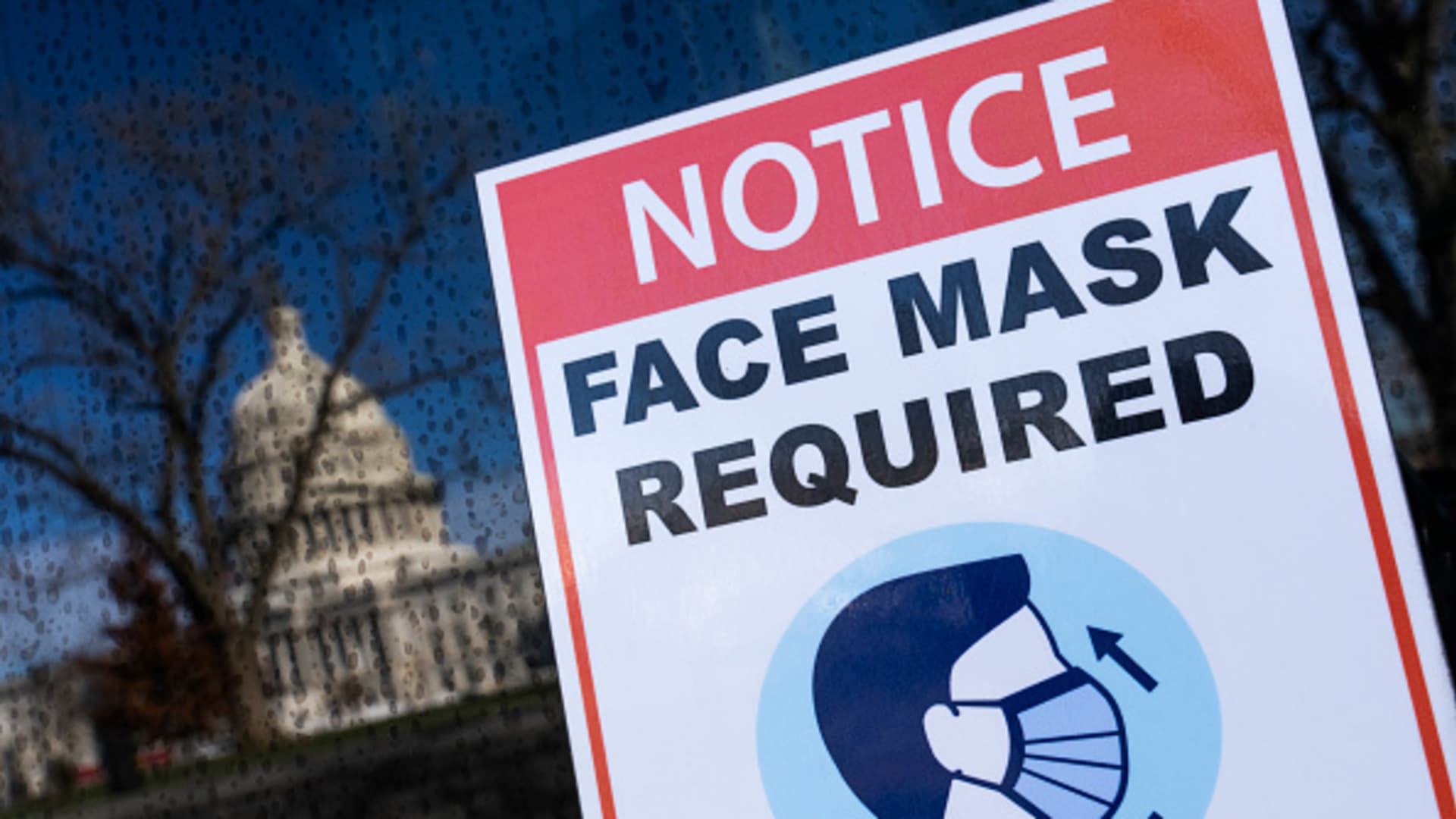Americans in most states will no longer receive Covid exposure notifications on their smartphones now that the U.S. public health emergency has ended.
Since 2020, nearly 30 states have used a Bluetooth system developed by Apple and Google to track the spread of Covid infections and send push alerts to any smartphone user who came in close contact with a person who tested positive for the virus.
The Association of Public Health Laboratories hosted the national server that the system ran on.
On Thursday, the organization said “the majority of states” stopped using the exposure notification system after the Biden administration ended the public health emergency on May 11.
APHL added it will no longer support key components of the system, which aimed to help millions of Americans trace their exposures and make decisions about isolating and testing for the virus.
In a joint statement, Apple and Google did not address states’ decisions to stop using the system.
The tech giants told CNBC the system helped public health departments fight Covid in a way that preserves privacy, referring to how it tracks infections without collecting the location or identity of users.
California, New York, Massachusetts, Washington, Virginia, New Mexico and Colorado are among the states that said they will no longer use the system after the end of the U.S. emergency declaration.
“These systems were timed to shut down on the same date that the nation’s COVID-19 State of Emergency ends,” the California Department of Public Health said in a statement late Thursday.
Several states used the system to create apps that smartphone users could download, such as CA Notify and WA Notify.
States also provided exposure notifications through a built-in feature on Apple and Google’s operating systems.
For that method, state health departments had to submit a configuration file with their contact information and Covid guidance to Apple and Google. The two tech companies would use the file to set up a feature on phones that users could activate to receive notifications.
On Friday, some Apple users who opted in for that feature received push alerts informing them that their iPhones “will no longer log nearby devices and you won’t be notified of possible exposures.”
One Apple user shared in a Twitter post that their alert said, “Your Health Authority Turned Off Exposure Notifications.”
But not all Apple and Google users in states that stopped using the exposure notification system have received similar alerts, as of Friday afternoon.
Neither Apple or Google addressed why some users received alerts while others did not.
There is no clear tally of how many Americans activated the exposure notification feature on their phones or downloaded apps over the past three years.
Virginia estimates that more than 3 million users have downloaded the state’s app or used the notification feature since those tools launched in 2020.
New Mexico said the “majority” of residents activated the notification feature on their phones. More than 1.5 million alerts were sent to users who may have been exposed to Covid, according to the state.
Washington said the state generated more than 2.5 million exposure alerts through its app or the notification feature.
Researchers in Washington found that the state’s notification tools saved an estimated 30 to 120 lives and likely prevented about 6,000 Covid cases during the first four months after they launched in November 2020.
Despite these benefits, some Americans have been skeptical of the Covid exposure notification tools.
A 2021 report by the U.S. Government Accountability Office said that the public expressed concerns about privacy. The report said the public may not trust both local governments and technology companies to handle sensitive health information.
State decisions to end Covid exposure notifications are part of a broader shift in how the country responds to the pandemic.
Health departments last year loosened Covid restrictions like masking and social distancing as more Americans got vaccinated and boosted against the virus.
That culminated in the end of the public health emergency, which phased out much of the funding and flexibility that helped expand Covid testing, insurance coverage and access to care during the pandemic.
Still, more than 1,000 Americans are still dying each week from Covid, according to the Centers for Disease Control and Prevention.

